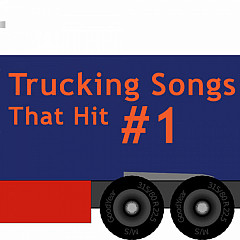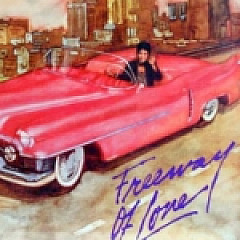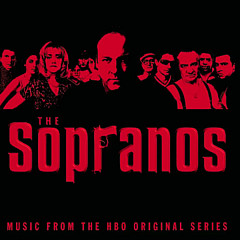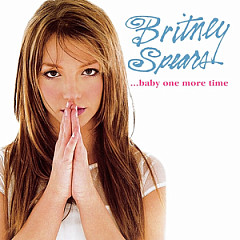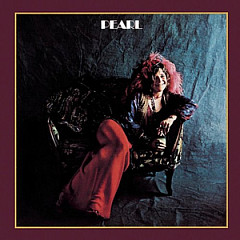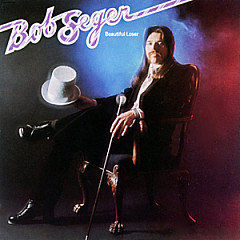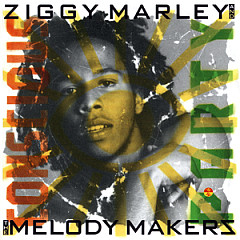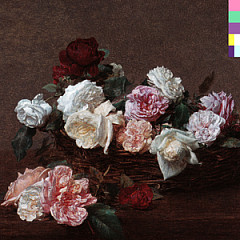
Jesse Fink is the author of The Youngs: The Brothers Who Built AC/DC and Bon: The Last Highway. His extensive research has led him to conclude that Scott did not die from alcohol poisoning, as officially reported. He also thinks the Back In Black album, released just five months after his death in 1980, has at least some lyrics written by Scott, who is not credited as a writer on any of the songs.
Here, he makes his case and explains how he uncovered evidence by tracking down some folks with first-hand knowledge, including Scott's ex-girlfriend and the pizza-shop owner who played drums on AC/DC's first album.
Why Bon?
My first AC/DC book [The Youngs: The Brothers Who Built AC/DC] was successful, which showed me that clearly there was a love for AC/DC around the world. I was very heartened by the reaction the book got. My publisher, Penguin in Australia, wanted me to do another book and this seemed like a natural progression to do it on Scott. I've always been fascinated by him.He's always been a bit of a maverick and an unusual character that died very young, but also produced an incredible body of work in a short space of time.
When the publisher was interested in me doing it, I thought, Yeah that sounds like a worthy project. I had initially planned to make the book take place in the USA between the years 1977 and 1979 because I had read the other AC/DC books and I always felt that the USA part of the story had never adequately been told.1 If you look at the touring of AC/DC in the late '70s, it mostly took place in the US. I always thought the most interesting part of that story was how AC/DC broke in America.
How It Started
The initial idea was me writing "Bon's American Journeys," but then as I got into it I realized that I couldn't avoid the issue of his death in London in 1980. It was something that I was very loath to get involved in because I thought I was going to go down the big rabbit hole. Of course, I was right, and I did go down this huge rabbit hole, and the final part of the book, the whole part about the death of Bon, ended up taking a year and a half to two years just to put together.It was such a fragmented, hard-to-follow story that had never really been told in a convincing way. Certainly, the anointed narrative of how he died in the back of a car in London from acute alcohol poisoning just wasn't very believable. If you speak to anyone who knew Bon, they said that he was a guy who had a remarkable capacity to drink a large amount of alcohol. The idea of him dying at the age of 33 due to acute alcoholic poisoning just didn't strike me as believable. I thought there had to be something else involved.
I was aware that the people he was hanging around with and the person he was last seen with were involved with the drug scene, so I thought drugs were involved with it, but I didn't know to what extent until I started putting all of the pieces together.
There was an author called Clinton Walker who wrote the first biography of Bon Scott. I read that many years ago and thought that was a good piece of work, until I started looking into the death myself. I realized that I had a very different take on how Bon died and I thought that Walker neglected to include certain things in his updated book that were really important. For instance, 15-odd years ago two of the guys from UFO gave a totally different story about when they found out Bon was dead, which was on the morning of the February 19, 1980, as opposed to the conventional story, which was Alistair Kinnear coming out to the car on the evening of the 19th and finding Bon dead. So there were two opposing stories.
When Walker updated his book in 2015 and dismissed the accounts of Pete Way and Paul Chapman [of UFO] and didn't even look into it, I thought, You're not doing your job. If you're a Bon Scott biographer you need to look into it. There's something there and I guess I took it upon myself to find how the two versions of Bon's death could match. It became a detective exercise, an investigation. I absorbed every possible piece of information that I could find on Bon's death.
 Jesse Fink
Jesse FinkTracking Down Sources
It was extremely frustrating when I wrote The Youngs. I was paying tribute to those guys and I thought gaining access would be easier, but it proved incredibly difficult to get any access at all. When Bon came up as a project I realized before I started that I most likely won't have access to anyone. That was OK because I had learned from writing The Youngs how to write about people you don't have access to.It's simple research. You write lists of people who are important in the story and you contact them. You see if they will talk to you, and 70% of the time they will speak to you, 30% they won't. Often in that 70%, you get some valuable nuggets. With Bon, I didn't want to write a rehashed AC/DC book. So many times when people write an AC/DC book they rewrite the same old shit over and over again. I wanted to write a different story.
I had a map of America and started pinning the cities where AC/DC visited between '77 and '79 to map out the road that they took. I went through old copies of Billboard magazine and found out what the local FM station was that was likely playing AC/DC at the time. I would find out who the old DJs were by going through old broadcasting magazines and contact them on Facebook.
I would contact them and say, "Hey, I know you used to work as a DJ in Manhattan in 1977 or whatever, did you ever come across AC/DC?" Not many had but there were a few who did. One of them was Neal Mirsky, who was a DJ down in Orlando in 1979. He said, "It just so happens I have an interview with Bon that I never played and you can have it."
To come across something like that was extraordinary. It only happened because I had methodically gone through this list and contacted people. I would say to anyone who is thinking of writing a biography, you can never do too much research. You never know what you will find when you do it.
I met Neal and he was very kind to give me that interview, which is on YouTube. He then introduced me to a friend of his, Michael Fazzolare from the band Critical Mass, who hung out with Bon Scott in Miami in 1979. This suddenly opened up for me to have the opportunity to tell a story that hasn't been told before, which was AC/DC in Miami rehearsing "Highway To Hell." When you think you've got nowhere else to go, if you do the research things suddenly materialize and you've got a book.
Malcolm Young
I had always really liked Malcolm from an early age because he didn't really look like a rock star with his long hair and a guitar that looked too big for him. He produced these sounds and riffs that just got etched into your brain - you don't forget them. That's the thing with AC/DC: they don't do anything too flashy, it's just simple rock.When I wrote The Youngs, I remember going to this art museum in New York and seeing Munch's The Scream painting and not being touched by it, then leaving the gallery and listening to the Back In Black album and thinking it's the most awesome thing I've ever heard in my life.
There's this tendency to look down on things that are seen as simple, as not artistic or ambitious enough. When you distill something down to its very basic ingredients and manage to make it powerful and memorable and brilliant, like AC/DC does, it's an art. Musically, when you look at what that band made in that period, the amazing amount of riffs they've introduced into our musical consciousness that we still listen to and remember every day, Malcolm was responsible for so much of it. The sound of AC/DC for me is Malcolm Young.
Bon's Lyricism
The great thing about AC/DC's songs from that period and why they still resonate to the fans to the degree they do is that you can relate to him. He's writing songs about being kicked in the guts by women, or losing out in love or not having money. Basic human issues that we all face at one time or another. I think that's why those songs go so brilliantly with listeners. Think of "Shot Down In Flames." He's singing about being turned down by a woman. They're just simple things that work.Not only is he a great performer and singer, he's a great lyricist and he's funny. He's witty and has a great turn of phrase, and I think that's what the later period of AC/DC lacks. Since Bon died, the lyrics generally became sort of juvenile and I don't relate or connect to them.
"Love Song"
That's a song that is regarded as AC/DC's worst song. The guy who was the drummer for this song is a guy called Tony Currenti. He's an Italian emigrant who just happened to be the studio drummer for that album [High Voltage, 1975, recorded in Australia]. He was recording for another band and was asked to stay back to record the drum tracks for AC/DC's first album. The Italian passport meant that if he went back to Europe, he would have had to do military service in Italy, so he turned them down.Tony gave up drums in 1977 or so and didn't touch them for another 37-odd years. I walked into his pizzeria in Sydney where you see this small, fat Italian guy flipping pizzas. It's so funny because this guy who looks like your typical Italian grandad used to play for AC/DC. He has never spoken to any journalists about AC/DC. I went in there and sat down with him and heard his story. It was remarkable. To think the biggest band in the world had this guy in it, who was making pizzas at a suburban pizzeria in Sydney, and people didn't know about it, was just extraordinary.
I asked Tony what his favorite AC/DC song was and he said "Love Song" was his favorite track.
Back In Black lyrics
The idea around Back In Black is that it's a tribute album to Bon Scott. It has been said and rumored for many years that there were lyrics in that album that were uncredited. If you look at the credits to the Back In Black album, it says Young, Young and Johnson.Brian Johnson played in a British band called Geordie, and he was asked to audition for AC/DC after the death of Bon, and he got the job. Within two months of Bon's death, they were in the Bahamas recording Back In Black and Johnson was credited for writing the lyrics.
Back In Black went on to become the biggest selling hard-rock album of all time, which is remarkable in itself, but even more remarkable that it was done in the space of two months and by a guy who had only written three songs for his previous band.
I was interested in looking into that issue of whether Bon contributed lyrics to the album and then the issue of how he died. Those were two very difficult things to answer, but I thought if I don't try and tackle them, then I'm not doing my job.
Angus Young and Brian have their versions of how those songs were written, and there have been subtle contradictions in both of their stories as they have been told. What I've realized from looking into albums like Powerage and Highway To Hell is that Bon wrote from his life. It stood to reason if Bon had written songs in Back In Black, they were about people he knew.
"You Shook Me All Night Long"
I had this serendipitous encounter with Bon's ex-girlfriend2 and I met people that she and Bon knew and heard how close they were. She said that Bon used to come out to her place in Miami and watch her ride her horse. The horse's name was Double Time. Then I'm looking at the lyrics to "Shook Me All Night Long," and I'm like, "Wow, this could be the person that inspired the lyrics to the song." I had always felt like that first verse of "Shook Me All Night Long" sounded like Bon Scott. It just had the zip and the ring of Bon Scott.Suddenly all these pieces of information are coming together. If we take the hypothesis that Bon had something to do with Back In Black, if there is a song on the album that could have been his, it's this one. As a listener, for me it screams Bon Scott. There's a whole bunch of things that I go into in the book about this particular song. For me, I've never been convinced that Bon had nothing to do with it.
Then you could look at a song like "Back In Black," a song about money, it kind of makes sense. We're being told that it's a song about memorializing a dead man, but if you listen to it maybe he's talking about being back in the black, which he was, financially, by the end of 1979. I went to the trouble of applying for and getting his certificate of probate which listed his assets by the time of his death. Bon had $31,000 to his name at the time of his death.
After spending time with his ex-girlfriend in Miami and seeing what a sensational woman she is, what she would have been in 1979, everybody wanted a piece of her. You could imagine Bon writing songs about her. I think there are songs on Highway To Hell that are about her. Michael Fazzolare said that he has no doubt that songs on Highway To Hell are about her. I think particularly "You Shook Me All Night Long," could well be a Bon Scott song. In fact I'm convinced it is. I do however say it is not definitely, that's just my educated opinion.
There was a story in Australian Rolling Stone in 1988 with a journalist called Elissa Blake. She asked Angus Young if he had thought about quitting. He had replied, "The only time was when Bon died, we were in doubt about what to do. But we had songs that he had written and we wanted to finish the songs. Thought that would be our tribute to Bon."
Then there was a second interview where Angus was talking with Paul Elliott, who asked him who wrote the lyrics on "Given The Dog A Bone" and others on Back In Black. Angus had said that Bon wrote a little of the stuff, so he had something to do with it.
Mystery Surrounding Bon's Death
I respect Walker for his earlier work, but I completely disagree with his conclusions. I guess the most significant thing was that with the conventional story, Bon was only with one other person, Alistair Kinnear, who was this mystery person that no one really knew anything about. The accounts of people who I have spoken to said that Alistair was very involved with heroin and dealing heroin. The people who I spoke to who were at the club that evening said that Bon had snorted heroin and was off his chops and wasn't in a good way. It became very clear to me from the accounts of the few people that are still alive, that Bon was very involved in the London heroin scene at the time.What was clear was that Bon could drink a lot. He is a man who seems to have this superhuman capacity to consume alcohol, yet he is dead in the back of a car with alcohol poisoning at 33. For me, given what Bon was involved with in the lead-up to his death, combined with who he was with on his last night, it became very clear that he had a heroin overdose mixed with alcohol that caused a fatal reaction.
I guess the most important thing that came up is that Bon and Alistair were with at least one other person at Alistair's flat, a woman called Zena Kakoulli, manager of the band Lonesome No More, who played at the club that night.
She said she was back at the flat with Alistair and Bon, and had never been asked at any sort of inquest. Nobody has ever asked to speak to her about the fact that she was there. Her sister was the lead singer of Lonesome No More and she said, "I saw Bon that night and as a former heroin user, he was stoned." This was an eyewitness account. Again, I don't have any definitive proof that he had a heroin overdose, but with all of this knowledge you can't come away with it without thinking that heroin had something to do with it.
My theory is that he overdosed and was already dead by the time he got to the flat in East Dulwich, and was left in the car for as long as possible in the hope that any traces of heroin disappeared by the time he got to the hospital. It's quite possible that's what they were trying to do.
There's a lot of mystery about that whole night, and I've put it together as well as I can. You can't go back in time to discern what actually happened. There's no toxicology reports and any health records I tried to find at the hospital have just disappeared. Many AC/DC fans refuse to believe that Bon had anything to do with heroin, but there are interviews where former manager and band members have talked about how Bon nearly got fired for heroin use, then also about a second heroin overdose in 1976. I don't think it's beyond the realm of possibility that Bon had a third overdose in 1980.
I respect and admire Bon and I want to find out how he died. He was a human being, not a caricature rock god that everyone thinks he is. He was a person with flaws, concerns and relationship problems, like anyone else on this planet. When I wrote this book I felt like I'm humanizing someone who should have been humanized a long time ago.
March 24, 2021
Subscribe to the Songfacts podcast, part of the Pantheon Network
Find Jesse's books at jessefinkbooks.com
Further reading:
Fact or Fiction: AC/DC Edition
List of AC/DC Songfacts entries
Footnotes:
- 1] Angus and Malcolm Young would sometimes confabulate a bit for the sake of a story. For years, they said "Thunderstruck" was inspired by a harrowing flight when Angus' plane was struck by lightning. When they issued their The Razors Edge compilation in 2003, they wrote a more prosaic story in the liner notes, explaining that it was a good title and synched with their "power" motif. (back)
- 2] Fink refers to her as "Holly X." (back)
More Songfacts Podcast


